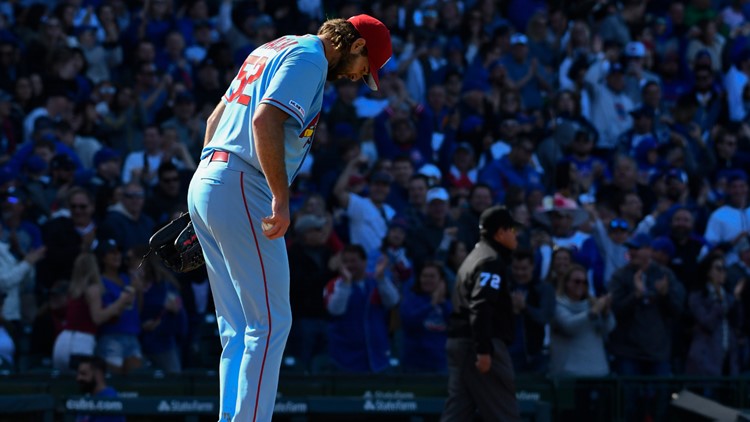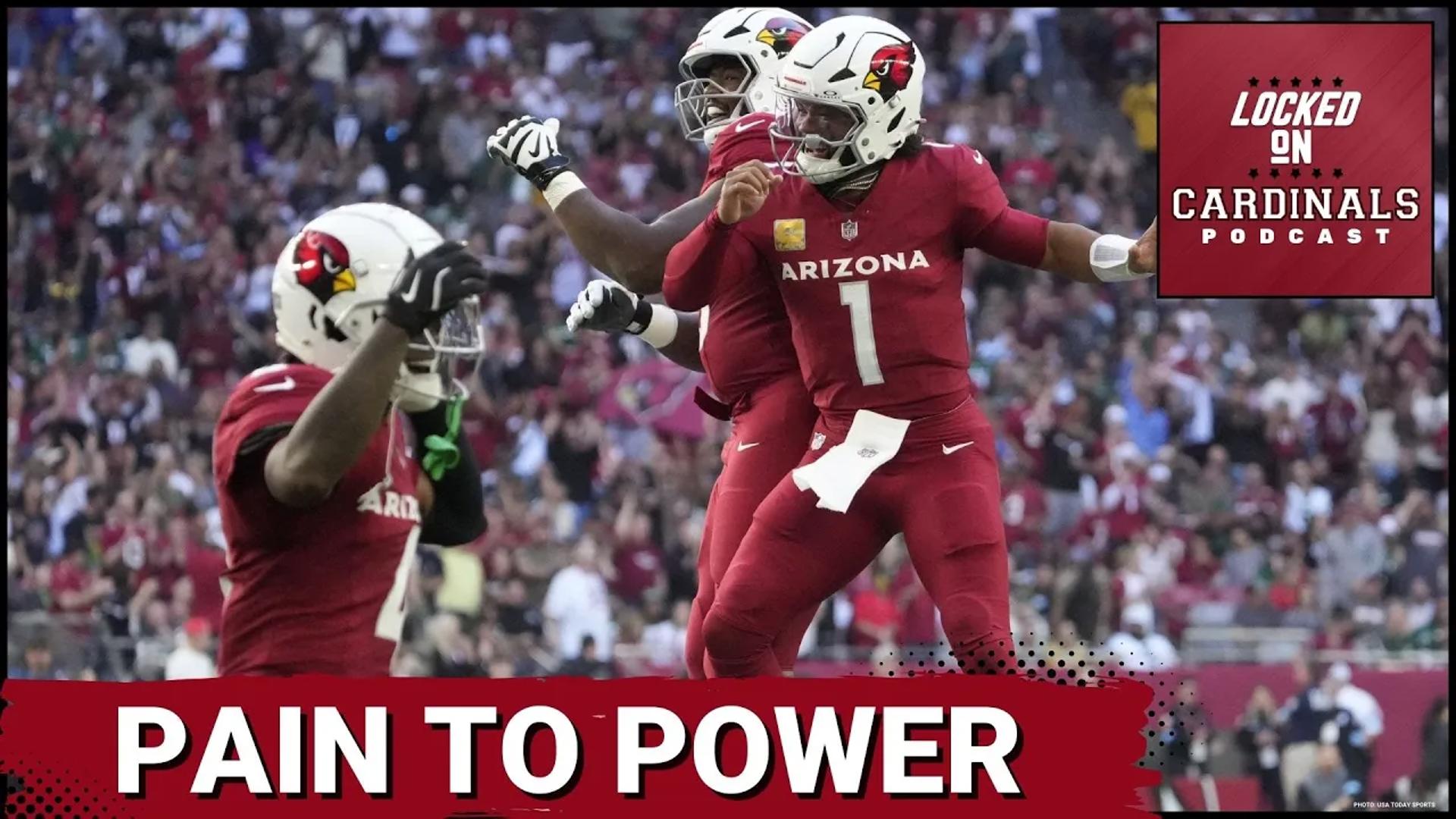ST. LOUIS — Why haven't the St. Louis Cardinals ever extended Michael Wacha?
The perilous question lingers around Cardinal Nation like a dubious notion that can't be discarded or properly digested. A pitcher who many projected would be the next staff ace has been stuck in a perpetual gridlock due to a number of factors, including injury and inconsistency. Most of all, Wacha is simply unreliable.
Take Wednesday's start, where Wacha gave up six earned runs in 4.2 innings against the lowly Kansas City Royals, throwing 86 pitches and walking four. He threw straight darts and may not have escaped a disastrous third inning if it weren't for the team having to play a nightcap. The rough outing brought Wacha's season ERA up to an unpleasant 5.59 and was the fourth outing in nine overall starts where he allowed four earned runs or more. He's only completed six innings in two starts, which is about as reliable as a boxer with a broken hand.
After the game, Mike Shildt expressed doubt while assessing Wacha's future, and that there's just cause to pull him from the rotation. A pitcher who once held high regard now sits in infinite limbo.
Let's take a look at his history before we stare down an unfortunate present.
The Texas A&M righthander burst onto the scene six years ago, brandishing a lethal fastball-changeup combination that baffled hitters all the way up to the World Series against the Boston Red Sox. Wacha outwitted Clayton Kershaw twice and nearly threw a no-hitter all in what seemed like half a season.
The following season was the beginning of the downfall. A rare yet chronic shoulder injury located around the scapula called a stress reaction brought the 2014 campaign to a screeching halt in June. Wacha returned, but his ERA of 5.40 in those four starts summed up a lost season.
2015 was a comeback. Wacha won 17 games in 30 starts, posting a 3.38 ERA. The following season, the Cardinals attempted a new program for Wacha to try and increase shoulder strength, and it worked ... for a while. In August of 2016, the stress reaction came back, halting a troubling season where Wacha only made 24 starts and posted a 5.09 ERA.
In 2017, Wacha came roaring back, winning 12 games and starting 30 of them, posting a 4.13 ERA and reasonable walk rate of 3.0 per nine innings. At the age of just 25, maybe there was time, and this was a rebirth.
2018 sure extended that promising ideal, with Wacha winning eight of his first ten decisions before injury his oblique and missing the rest of the season after just 15 starts. With him, the ceiling on his ability is a relative term with an asterisk attached. What will go wrong next?
Wacha's knee has already landed him on the disabled list once this season, which may have saved the team from another loss or two. When he's not hurt, Wacha is inconsistent. He will have a good season, followed by a poor or incomplete one, and then a moderately acceptable one follows. It's an endless state of disappointment.
Why hasn't he received an extension? It's simple: Wacha is a bad bet and works off a limited repertoire of pitches. While he has mixed in a curveball the past two seasons, Wacha mainly works off a fastball and changeup. That's fine if you are a reliever, but it can be doom for a guy needing 15-21 outs per outing. Hitters can easily snuff out a pitcher working with a limited supply of tricks.
The Athletic's Joe Schwarz looked into Wacha's troubles and found problems in his pitch tunneling. According to Schwarz, "there are 2 major parts of pitch tunneling: 1) Getting the pitches to look similar at the batter's decision-making point (duh), and (probably) more importantly, 2) The separation between the 2 upon reaching home plate."
Schwarz pointed out that Wacha is not doing a good job of separating his fastball and changeup. Even worse, he says the righthander's fastball is destroyed by lefties, and the expected wOBA (weighted on-base average) is a whopping .434 for lefthanded batters.
Basically, what Wacha is offering is bad, and he will probably get hurt again before the end of the year. A bad bet indeed.
The Cardinals haven't extended Wacha because they don't know what the next season looks like. Will he make 25 starts? Will his ERA be 5.09 or 3.20? Is he ever going to achieve any kind of consistency? Probably not.
He turns 28 on July 1 and will most likely pitch elsewhere next season. This past winter was his last arbitration deal, where he signed for $6.35 million. In November, he's a free agent, and the team may even look to deal him before the trade deadline if they were smart. They should look into dealing him, because he is replaceable. Why do you sign a starter with one great pitch who happens to have a chronic shoulder injury and is approaching 30 years of age?
I'd expect Wacha to be replaced by either Ryan Helsley, Austin Gomber, Daniel Ponce de Leon, or even Alex Reyes on June 2 when the team needs a fifth starter again. It'd be negligence personified to have Wacha climb that hill knowing you need wins.
By the way, the "don't worry, it's still early" claims should start dying soon. We are almost into June here, playing game #50 tonight. The need to try things and hesitate with hurting veteran player's feelings should be closing for business.
Michael Wacha will never be a good bet for the Cardinals or any Major League team to invest heavily in. He's gotten countless chances and always comes up short. There was a time last year where it almost seemed surreal how well he pitched. Coming into this year, I thought he could be an X-factor for the team. And then he pitched.
Forget it. What started out in graceful fire has erupted into flames of a much different sort.
Wacha peaked in 2013. It's been downhill ever since.



